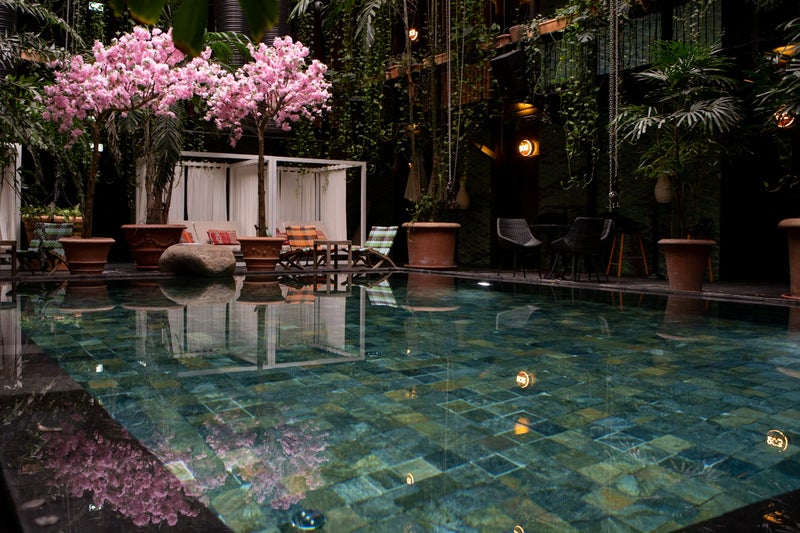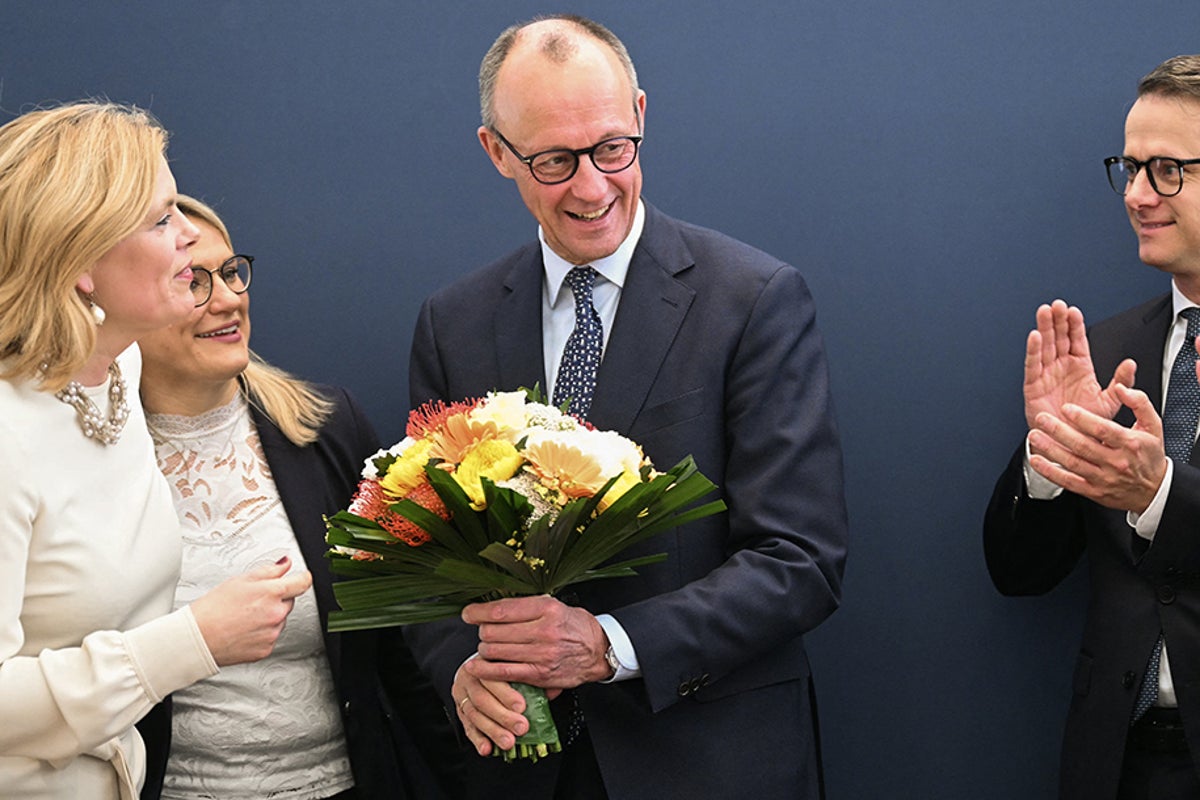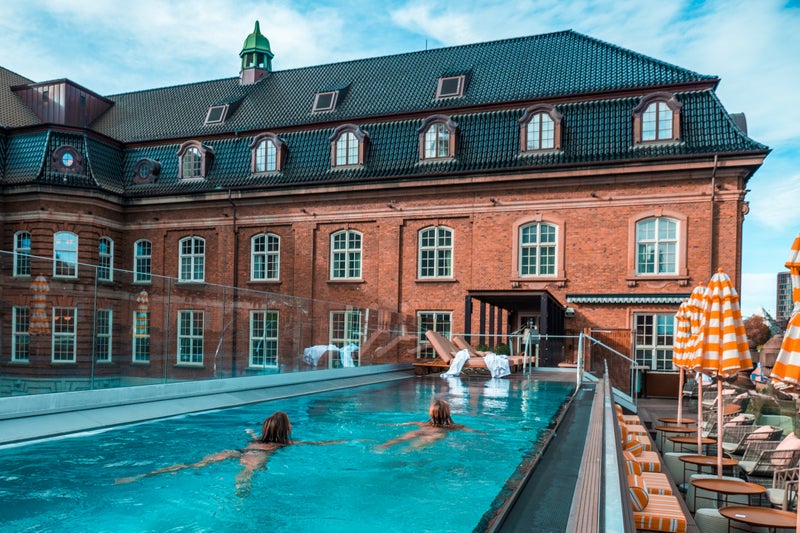The massacre in Bucha, the mass graves in Izium – it is as if these atrocities never happened. Now the truth is being taken out and shot. Orders and statements from the new US president come at us daily now, with unremitting speed, and international politics is reduced to an endless series of justifications and denials of unfounded accusations.
![[Oleksandr Mykhed]](https://i.guim.co.uk/img/uploads/2025/02/25/Oleksandr_Mykhed_v2.png?width=180&dpr=1&s=none&crop=none)
It’s hard to believe, but Ukrainian activists have had to write explainers for a global audience, reminding them who the true dictator is, that it was not Ukraine that started the war with Russia and that we are actually just trying to defend what is ours. And, you know, to survive a little bit.
![[A man, a young girl and a woman crying. ]](https://i.guim.co.uk/img/media/2c79b6bd532093d5e6166a36b6711dd763e75cad/0_0_8640_5184/master/8640.jpg?width=445&dpr=1&s=none&crop=none)
These past three years of our lives have been referred to in many ways: Putin’s war, the Russo-Ukrainian war, the full-scale invasion, the conflict. Now some of the media are starting to call it simply the Ukrainian war or the Ukrainian crisis. US envoys have started objecting to the phrase “Russian aggression” in G7 communications. And we are being dragged into a paradigm in which the war crimes of the Russians will soon be called “those events” or “this situation”.
![[A damaged building with a large crowd of people outside. ]](https://i.guim.co.uk/img/media/b0ca218656961f7bab3383e82e59832ef19c0142/0_223_6000_3600/master/6000.jpg?width=445&dpr=1&s=none&crop=none)
The world is trying to understand how Ukrainians feel about all this, and I have been having chats with foreign journalists. Almost everyone asks whether it is possible to get used to living in a war. Judging by their questions, it seems as if the world has long since grown used to the idea that there is a war in Ukraine and that this is simply the way it is now. One more shelling. That’s just how things are over there.
I don’t know, I tell them, how one can get used to the reality of war. Every night, the Russians launch dozens of deadly Shahed drones targeting energy and civilian infrastructure. Right now, when it’s -10C outside. A strike this month on a thermal power plant in Mykolaiv, in the south of the country, left 100,000 Ukrainians without heat. And after the latest assault on Odesa, the Russians have left 14 schools, 13 kindergartens, a children’s hospital and 250,000 residents without electricity and heating. Every night, Kyiv is shaken by explosions. Every day, Russians occupy new settlements. This week it was Bilohorivka in the Luhansk region that became a grey zone.
Ukrainian servicemen and women are defending the borders of our country around the clock. Years of grief without the opportunity to grieve, tragedy that cannot be lived through but is simply compounded by the next airstrike. A foreign journalist asked me if I had ever felt real hatred towards Russians and dreamed of killing them one by one. I said it was an inappropriate question. I understand that you are doing your job, but please do not squeeze emotions out of us just to give yourself a headline for your report. The journalist said it was just that, when the enemy did this to your people … I said, please, hatred is destructive. Anger is a more constructive feeling that gives you strength and opportunity to at least somehow act.
A major international media outlet asked me recently to join its educational platform. I had to record a video message in English and talk about my experience of serving in the armed forces of Ukraine, so children around the world could learn English from these videos and accompanying materials. I recorded it and did everything according to their instructions.
I got a cheerful message the other day from the editorial office, saying: “We’ve launched!” I opened the presentation and had a panic attack. The lesson was structured around eight speakers, each talking about their war experience: four Ukrainians (including me) and four Russians. A Russian journalist and armed forces “deserter”. A Russian teacher. A Russian medical director. Another Russian journalist. The lesson ended with a slide. The Russian flag was at the top. The Ukrainian flag at the bottom. The question proposed for discussion: “What similarities and differences did you notice when listening to the experiences of people from Russia and Ukraine?”.
The emotional negligence of this makes me want to scream. Over the years, we have been turned into research material. I am sickened by how my story has become an ideological tool to equalise the experience of the defender and the attacker. I am losing my subjectivity. Still, I must pack my screams, nausea and despair into diplomatic phrases and requests to the international media outlet, asking them to remember that the experience of Ukrainians and Russians in this genocide is not something that can be compared.
I’ve been living with the acute feeling that the world is tired of restraining its unquenchable love of Russia. The west wants to believe in the Cinderella story, that one day the dictatorship will fall and a wonderful democratic world will emerge. Instead of imposing further sanctions and restrictions on Russia, the west is ready to crown the film Anora with all the awards, despite the fact that the Russian actor Yura Borisov, who appears in the film, also starred in a biopic of Mikhail Kalashnikov, the inventor of the AK-47, which was partly filmed in Crimea after its annexation.































